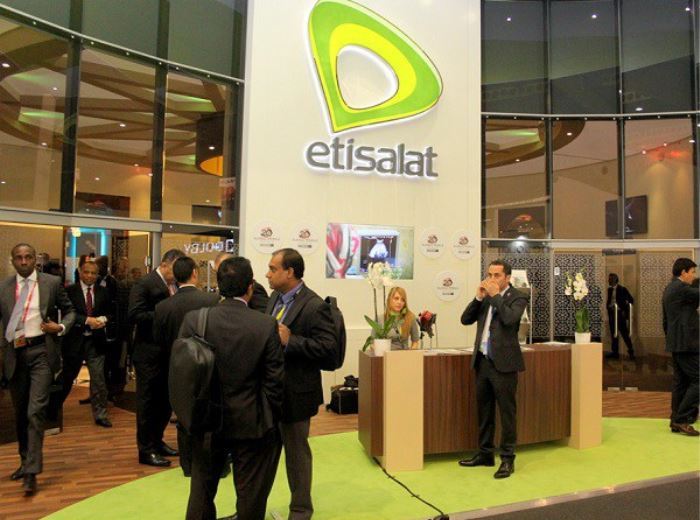Etisalat $1.2 billion debt talk fails, proffer to change shareholder structure

Etisalat Nigeria has initiated changes to its shareholding structure after talks with lenders to restructure a $1.2 billion debt failed, the company said on Tuesday.
The telecoms firm has been in talks with Nigerian banks to restructure its loan after missing repayments but those discussions failed to produce an agreement, Abu Dhabi listed Etisalat said.
Etisalat is the biggest foreign-owned victim of dollar shortages plaguing Nigeria’s financial system because of lower oil prices and economic recession, leaving it struggling to make the loan repayments.
The loan that has proved so troubling for Etisalat Nigeria is a seven-year facility agreed with 13 local banks in 2013 to refinance a $650 million loan and fund expansion of its network.
UAE’s Etisalat, with a 45 percent stake in the Nigerian arm, on Tuesday said it had been ordered to transfer its shares to a loan trustee by June 23, after negotiations failed.
It added it was carrying the stake at nil value.
Ibrahim Dikko, vice president for regulatory affairs at Etisalat Nigeria told Reuters that management was continuing to run the business after the shareholding changes and that there were contractual and regulator issues to be finalised.
TECHNICALLY BANKRUPT
Nigerian regulators had tried to prevent lenders placing the telecom firm into receivership to avoid a wider debt crisis and agreed with banks to pursue a default deal.
But lenders, under pressure to avoid loan-loss provisions, have been pushing to finalise restructuring before half-yearly audits this month.
The index of Nigeria’s top 10 lenders shed 1.1 percent on the news on Tuesday.
Sources say Etisalat, which generates 3.7 percent of its revenue from the Nigerian business, had questioned the rationale of investing more in the local unit, when asked by lenders to recapitalise its affiliate as an option.
Abu Dhabi state-investment fund Mubadala, the second-biggest shareholder in Etisalat Nigeria, declined to comment.
Nishit Lakhotia, head of research at SICO Bahrain, said one option for Etisalat Nigeria could be for some sort of consolidation, merger or to find new investors.
“But that seems difficult given the situation the unit is in … after a default in paying its debt,” Lakhotia said. “It has to turn around through debt restructuring … or regulatory support.”
An Etisalat Nigeria spokesman said the company was still in discussions with lenders to find a “non-disruptive” solution.
Dikko said services to its subscribers will not be affected by the changes in shareholding.
Etisalat said its financial exposure to Etisalat Nigeria was related to operational services worth 191 million UAE dirhams ($52 million) and that discussions were ongoing with lenders regarding the use of the Etisalat brand name.
Etisalat Nigeria has 20 million subscribers, according to Nigeria’s telecom regulator, making it the country’s number four mobile operator with a 14 percent market share. South Africa’s MTN has 47 percent, Globacom 20 percent and Airtel – a subsidiary of India’s Bharti Airtel – 19 percent.
($1 = 3.6729 UAE dirham)









0 Comments